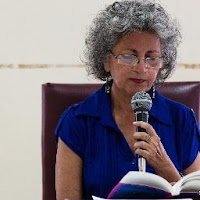Translation
studies in India is an evolving discipline.
Historically, it was only in mid-nineteenth century that the translation
became a significant intellectual issue in India when the question of ‘imagining
a nation’ became problematic with the realization of multilingual and
multiethnic nature of Indian society. While the idea of nation as a linguistic
and cultural unit based on the Eurocentric model started appearing clearly
inadequate, translation started to appear as an urgent cultural necessity for
nationalistic, indologicial and orientalist projects. The earliest writings on
translation in India emerged during this period of the rise of print capitalism
and Vishnu Shastri Chiploonkar’s Nibandhmala in Marathi in 1874 can be
seen as one of the earliest attempts to intellectually confront the issue of
translation.
Practitioners and thinkers
of this period like Romesh Chander Dutt, and Sri Aurobindo reflected on
translation from nationalistic, indological and orientalistic perspectives. The
source language, needless to say, was largely Sanskrit and the target language
was very often English.
It was only
in post- independence period, that the dissatisfaction with the nationalistic,
indological and orientalist idea of culture and nation made Indian
intellectuals to search for alternative models of theorizing and reflecting on
nation and civilization. The questions of regional and linguistic identities
became prominent during the processes of linguistic reorganization of states.
The questions of caste and gender identities and the movements against
discrimination and injustice started gaining ground. In such a context, the
idea of nation as an elitist upper caste, upper class and patriarchal construct
started being vigorously interrogated. The little magazine movements
challenging the predominant formalist and idealist poetics also started
questioning the political underpinnings of the established literary culture. It
was against this politics of interrogation and revision that the questions of
translation started being posed. The major practitioners and scholars of this
period like AK Ramanujan, Dilip Chitre, Sujit Mukherjee among many others
approach the questions of translation in the context of this shift from
nationalist, orientalist elitist framework to more regional/ local and demotic
outlook towards culture and nation. This shift is clearly noticeable in their
choice of source languages and texts which are very often from the marginalized
oral, folk and ‘native’ traditions or from bhashas instead of Sanskrit.
Their reflections on translation also reveal these re-visionary attitudes.
However, most
of the thinking about translation practiced by academics in this period not
just in India was around the ‘problems’ of translation very often in a
normative way and limiting itself to viewing translation as a process. Internationally,
the shift from this normative, process-oriented and hierarchic view of
translation to more descriptive, product-based, ideological and subversive view
of translation emerged only with the rise of ‘translation studies’ as a
discipline in the nineteen seventies.
The late
nineteen eighties and nineties was an exciting period for the discipline of
translation studies in India. Seminal writings like GN Devy, In Another
Tongue: Essays on Indian English Literature (1993), Sujit Mukherjee’s Translation
as Discovery and Other Essays on Indian Literature in English Translation (1994),
Tejaswini Niranjana, Siting Translation History, Post-Structuralism, and the
Colonial Context (1995) and invaluable anthologies like Promod Talgeri, and Verma. S.B. eds. Literature in Translation from
Cultural Transference to Metonymic Displacement (1988), AK Singh ed. Translation: Its theory and
Practice (1996) , Dingwaney,
Anuradha and Carol Maier.(eds.) Between
Languages and Cultures: Translation and Cross-Cultural Texts (1996) S.Ramakrishna ed. Translation and
Multilingualism. PostColonial Contexts
(1997), Tutun Mukherjee ed. Translation: From Periphery to Centrestage
(1998) and Susan Bassnett and Trivedi eds. Post Colonial Translation: Theory
and Practice. (1999) burst upon the scene. Most of these writing build upon
the reflections and practice of translator-scholars like A. K. Ramanujan. These
writings are not only informed by the ‘ cultural’ turn in translation studies
but also draw heavily upon theorization of postcolonial studies, gender
studies, Dalit studies and post structuralism.
With the
twenty-first century, globalization permeated nook and corner of Indian society
forcing people to seriously rethink the questions of nation, cultural
identities, languages and civilization. The explosive growth of digital
technology in form of the internet, cellphones and social media in the
beginning of the twenty first century has altered the way people communicate
and process information and knowledge. The economic reforms from the nineteen
nineties of liberalization and privatization intertwined with the processes of globalization
producing a new urbanized middle-class and a distinctive landscape dominated by
multi-storied complexes, mega-malls and proliferation of multiple types of
automobiles. The economic growth was not without its catastrophic implications.
The rise of religious fanaticism, terrorism, alarming development of farmers
committing suicide and environmental disasters accompanied by growing
criminalization and corruption of public life raised new questions before
Indian society. The politics of electoral democracy in the post-Mandal period
when there was a reconfiguration of politics of caste and reservations has
undergone substantial shift. The questions of very existence of Indian
languages, marginal identities, ethnic minorities, and natural environment have
become more acute than ever. At this juncture it will be fruitful to think of
how translators and translation scholars engage with these new questions. It will
be interesting to find out how translation studies scholars extensively and
intensively deliberate upon the complex emergent issues like:
·
Translation in India and the Digital Revolution
·
Translation and the Fate of Indian Languages
·
Translation and the question of Literary
Historiography of post-Independence Indian Literatures
·
Politics of Translation between the Bhashas
·
Teaching Translation Studies in Indian
Universities
·
Poetics and Politics of Translation of
translating marginal literary discourses like the Dalit literatures, the
Adivasi literatures and LGBT writings into English and into Bhasha
·
Politics and Mechanics of Film and TV Adaptation
and subtitling into Indian Languages
- Translation and Corpora Linguistics in India
Read my blog on using Semiotics of Culture as a Theoretical Framework for studying Indian literatures and cultures.














